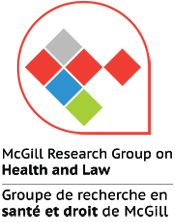State Incentives to Promote Organ Donation: Can a System of Rewarded Gifting Ease the Organ Shortage?
9 November 2011
 A seminar with Mélanie Mader, Postdoctoral Fellow, Research Group on Health and Law
A seminar with Mélanie Mader, Postdoctoral Fellow, Research Group on Health and Law
Organ transplantation is a very successful medical procedure, which saves the lives of thousands of patients worldwide every year. However, this success is limited by a major problem: a chronic shortage of transplantable organs.
In this seminar, we consider the medical, social and economic issues raised by transplantation medicine and define organ shortage as a public health problem. Based on this premise, we present the idea of establishing a public policy to promote organ donation within the Swiss legal system.
As part of a public policy, the State can use incentives, i.e., regulatory instruments to reward organ donation. Considering legal and ethical constraints, we show how these incentives can be designed to increase organ donation rates without violating the prohibition of organ sales.
This argument leads us to envision several innovative incentives such as tax breaks for willing donors; priority status on the waiting list for a registered donor should he or she ever need an organ transplant; discounts on health insurance premiums; or a rebate on a donor's funeral costs. Finally, we discuss examples of States where some of these incentives have been adopted.
See also Focus online: The Laws of the Heart - Mélanie Mader on organ transplantation.


